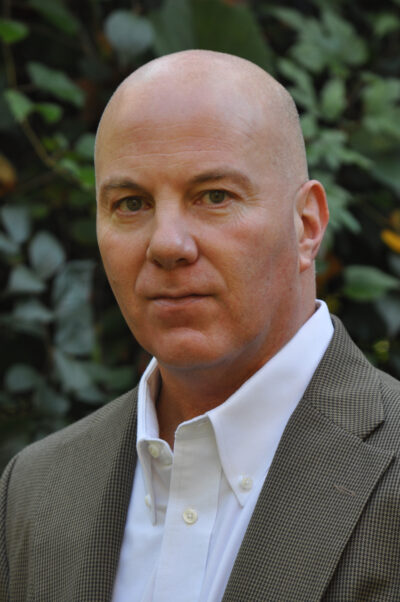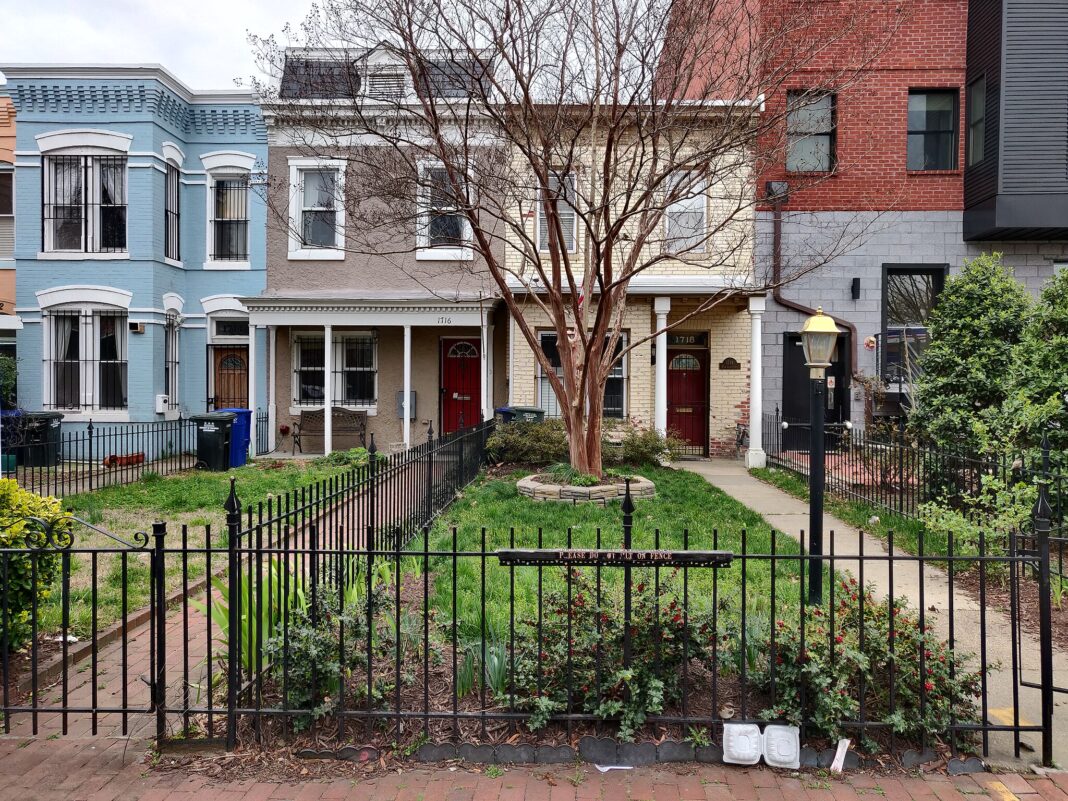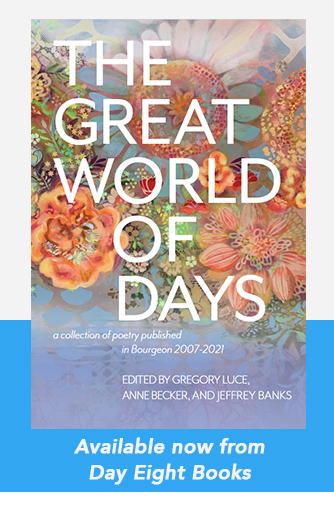When Langston Hughes Lived
at 1749 S Street, NW, Washington, D.C. 1
Living with your mother
and younger brother couldn’t
have been easy.
In two rooms,
with one oil heater
you carried from room
to room each night.
This is not the life.
Working at a laundry
was hard work, toil with
hot water and soap,
chemicals almost as dangerous
as poverty.
But in this neighborhood
of hardship,
you spilled forth poems
with melodies.
You sang “Weary Blues.”
Your foot tapped
a “drowsy syncopated tune.”
You rallied your own voice
to “make that old piano moan.”
Because this is what you do.
This is the way work seeps
out of your skin:
through words with a beat
like exhaustion,
lines with a melody
like getting up every day
and doing it again.
When Langston Hughes Lived
at 1749 S Street, NW, Washington, D.C. 2
Did the neighbors ever hear you
chanting the words to your poems
while you wrote?
Did they wonder about the tapping
they heard when your mother
and brother were gone at work
and you were alone in your precious
solitude?
Did you read your words aloud
as you typed and re-typed?
Those upstairs rooms must have
become like a sunlit jazz club, soaking up
the soaring tunes and hard shoe
beats, growing thick with the light
snare drum tap, the controlled brush
of cymbal, the sorrow song
of your words, crowding one another,
following one another, one line
more anguished than the last.
When Langston Hughes Lived
at 1749 S Street, NW, Washington, D.C. 3
When you were alone here
you learned the need.
These small rooms taught you
loneliness was not
always lonely. Being alone
could be the gift
you most desired, the
answer to the call.
You were not far from U Street,
the lights and suits
and dresses and coats.
The trumpet’s sorrow
the saxophone’s smile.
But here, in this quiet,
on this street of pines
and roses, wives and husbands,
children with grins big
as clouds, you built
the home you would one day
treasure. It would not be
in this city. But you learned
Harlem here.
You understood your need
for your own stoop, stairs,
rooms, desk, windows,
words.
When Langston Hughes Lived
at the 12th Street Y: 1816 12th Street, NW, Washington, D.C.
Some rooms in this world
are small:
a narrow bed,
tall window,
wooden desk,
a Royal typewriter,
this black metal box of letters.
It learned the feel
of your fingertips,
young and pressing,
anxious to push
a poem into the world,
a river.
It learned the beat,
the beauty of your breath,
measured, exhausted, held.
The clattering of that typewriter
was both alarm and freedom.
The zip of the carriage
meant you were building
poems word by word.
The bell at the carriage’s
return signaled the joy
of a poem’s unfolding:
a river bigger than fear.

Joseph Ross is the author of five books of poetry: Crushed & Crowned (2023), Raising King (2020), Ache (2017), Gospel of Dust (2013) and Meeting Bone Man (2012). His poems appear in many publications including The New York Times Magazine, Xavier Review, Poet Lore, The Langston Hughes Review, and The Los Angeles Times. He teaches English and Creative Writing and writes regularly at www.JosephRoss.net
Image: Kurt Kaiser, CC0, via Wikimedia Commons. Author photo by Ted Schroll.


